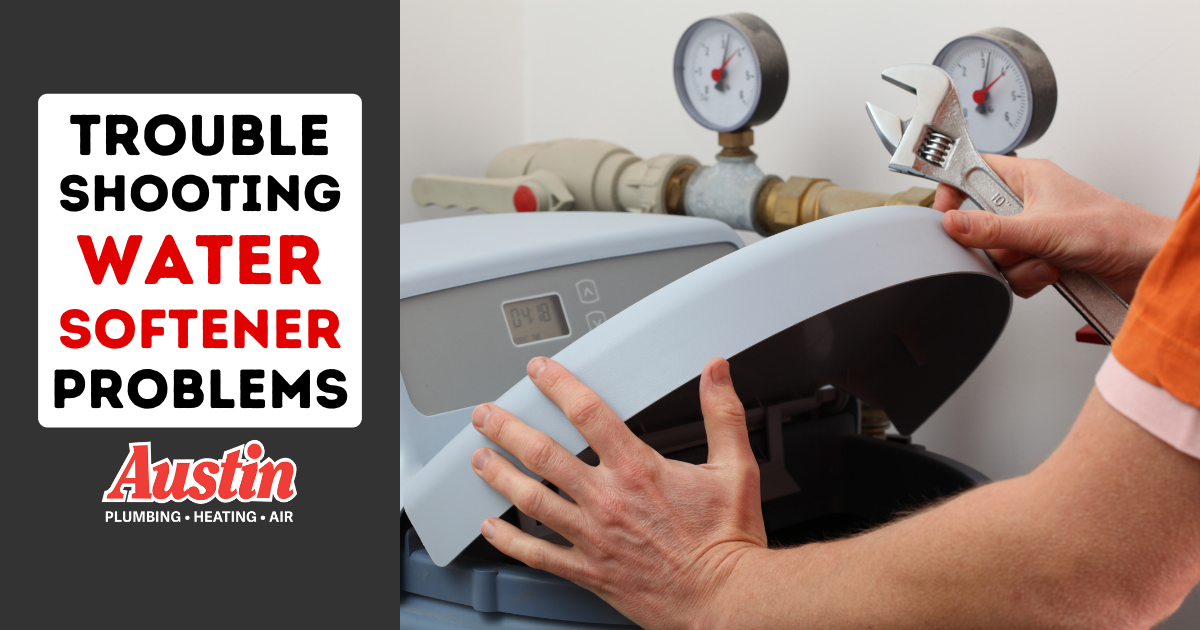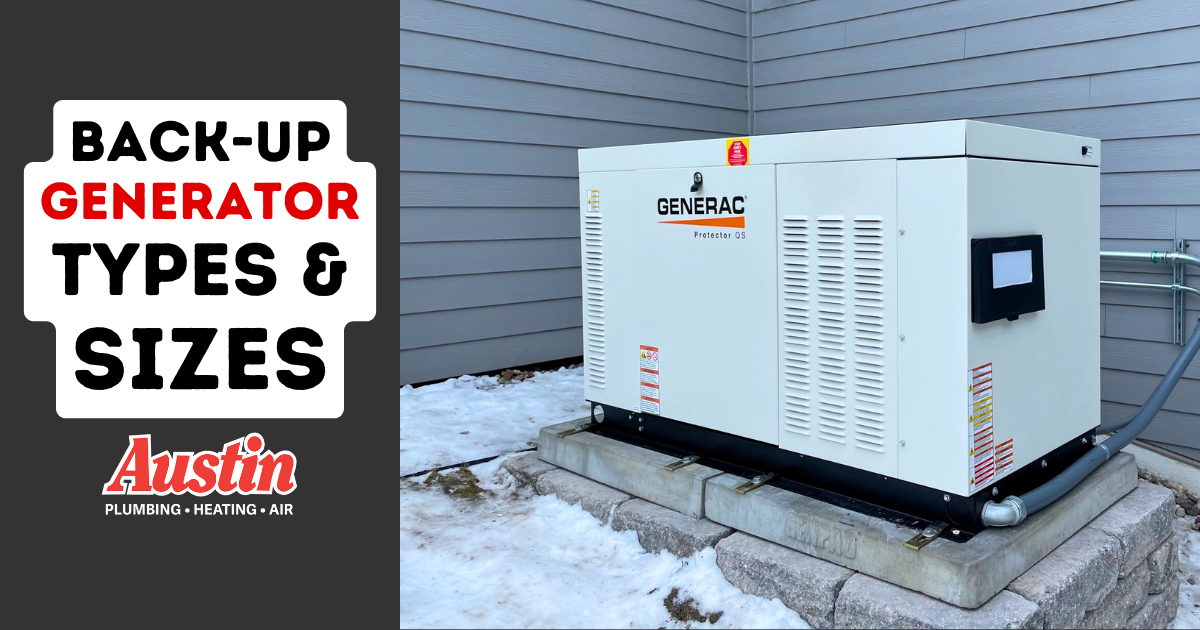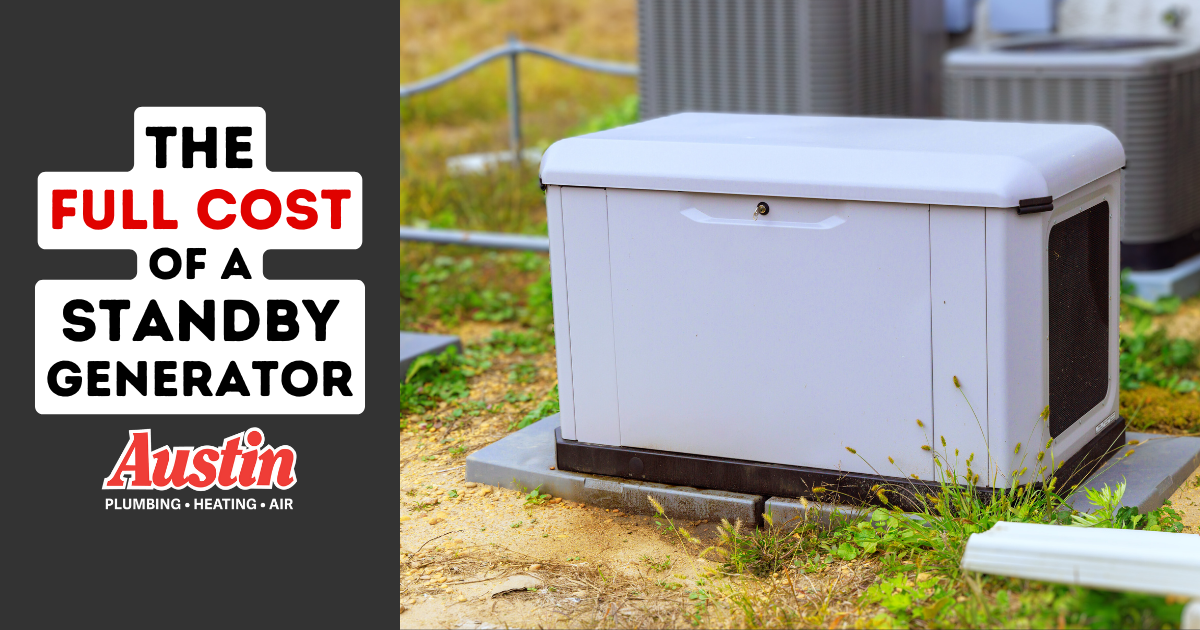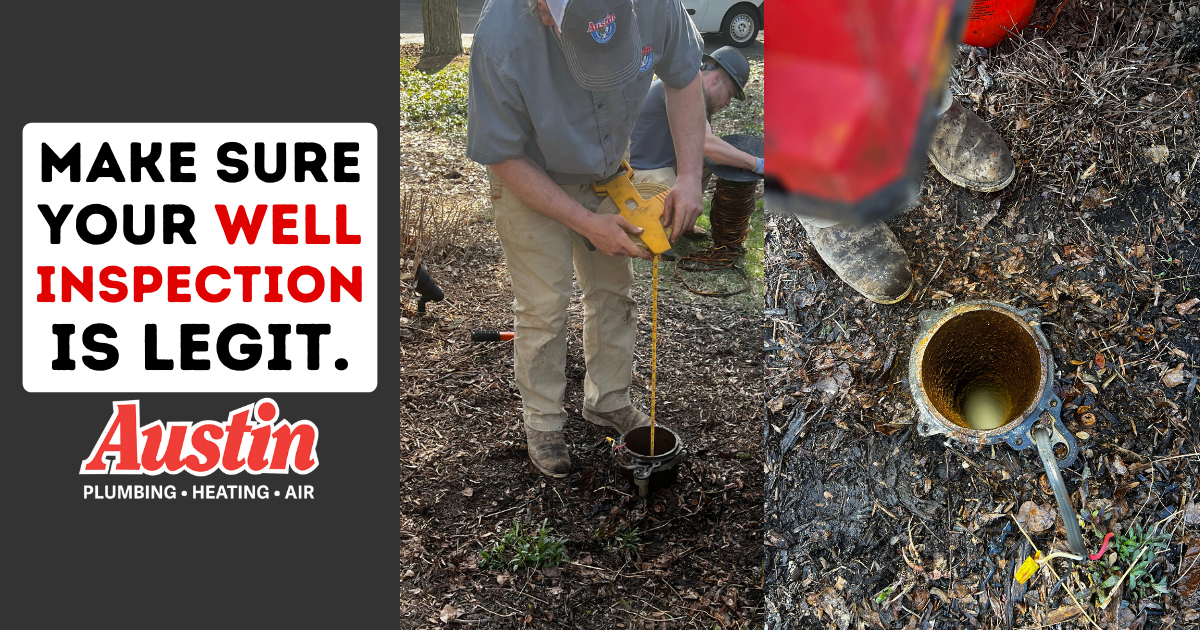How Long Does a Water Heater Last?
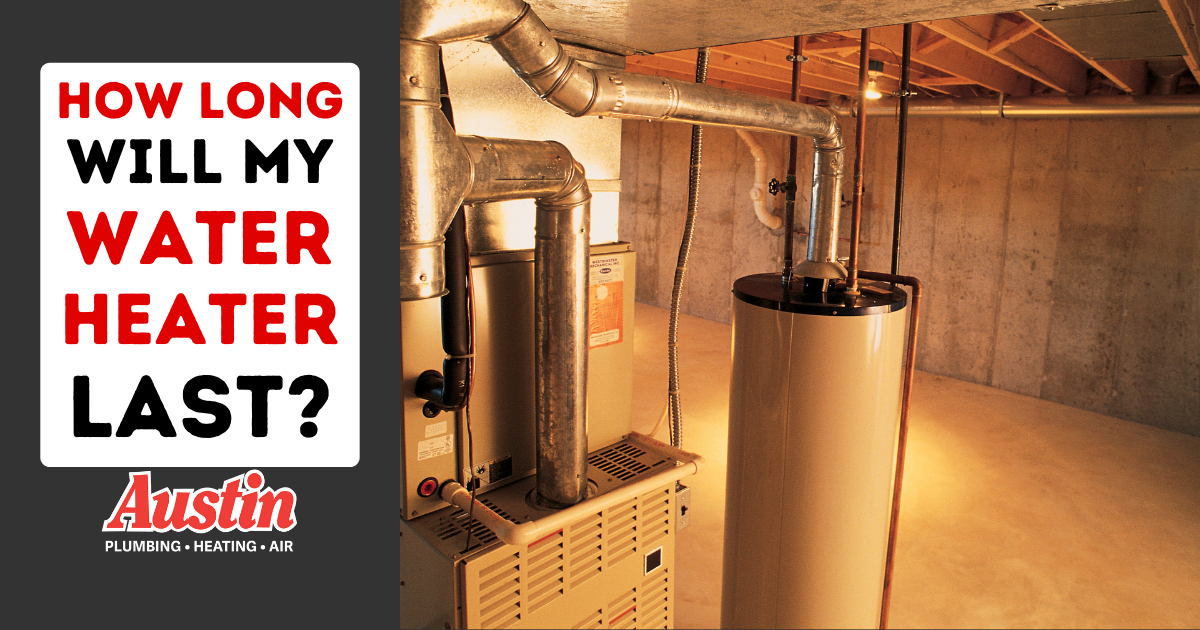
The master tradesman’s response to all your burning questions about water heater tank life and the typical lifespan of a tank-style water heater.
The Achilles’ heel of the tank-style water heater has always been the tank itself. All other components of the water heater can be fixed if they begin to break down, but a damaged tank cannot be saved. That means a single leak is all it takes before the entire appliance must be replaced-even if your water heater is only a few years old.
Why don’t new water heater tanks last as long as they used to?
We, too, remember the days when people could count on their newly installed water heaters to last them 20 years. Sadly, those days are behind us. The team at Austin Plumbing, Heating & Air replaces dozens of water heaters every week, and the vast majority of them aren’t even 10 years old.
It’s our pleasure to expose the five biggest causes behind this phenomenon.
Reason #1: They Don’t Make Tanks Like They Used to
There’s a gargantuan elephant in the room: it’s the decline of tank manufacturing standards (and the blatant dishonesty surrounding them). It’d be one thing if water heater tank manufacturers simply insisted their tanks are still as good as they always were, but they don’t stop there. Amazingly, they’ve now begun claiming that their tanks are built to a higher standard than in previous decades-because nothing screams “technological advancement” like a product that seems to get worse every 10 years.
Believe it or not, there are still water heaters alive today that have been around for 30 to 40 years, though the vast majority are under 15 years. But where are all the 15-to-29-year-old water heaters? They’re the rarest of all. This generational gap is a likely indicator of some industry shift toward planned obsolescence, possibly starting as far back as the 90s.
Reason #2: Poor Water Quality
Water with high mineral content, like Wisconsin tends to have, can also contribute to water heater failure. Then there is the issue of chemically-treated city water. Potability notwithstanding, these additional dissolved solids are not kind to our water system.
When the amount of total dissolved solids (TDS) in water becomes high enough, the water feeding your heater effectively starts to sand-blast it from the inside out. You can read about a number of additional factors that affect water quality [here]. Keep in mind its direct effect on tank longevity!
Reason #3: Excessive Water Pressure (How Cities Overextend Themselves)
Of all the factors that contribute to tank degradation, water pressure might be the biggest one. As a city grows, it generally expands outward from a central point, which is by no means ideal for the water system. But the farther away a community is from the heart of the city, the harder it is to supply them with water.
To expand the water system infrastructure at its core would require bulldozing major roads and upending entire plumbing systems to replace the existing pipes with bigger ones. Of course, this is not a viable solution. Instead, cities crank up their water distribution pressure at the source. For inner-city residents, regardless of income or status, this severely increases the strain on home water-heating appliances.
Even though water heaters naturally expand and contract with temperature changes, remember that there is a limit to the wear and tear a water tank can handle before it gives out. And once the tank gives out, that’s it for the water heater.
Reason #4: Electrical Grounding
Often, a modern electrical system is grounded to the nearby plumbing system. Putting aside the dubious legality of the practice, this factually results in the conduction of stray voltage through the water pipes. It is also a scientific fact that these wayward electrical currents can cause a water heater’s anode rods to deteriorate more quickly. In other words, electrical grounding destroys the very thing that’s supposed to protect your tank from gradual destruction.
Reason #5: Recirculation Pumps
In an era of instant gratification, all too many homeowners have been encouraged to install recirculation pumps on their water heaters as a means of keeping hot water in constant circulation. As hot water moves through the home plumbing system, pipes and appliances are eroded without respite, which is why we don’t do recirculation.
Do electric, gas, and hybrid water heaters require different tanks?
The short answer: No. Based on our own expertise as well as known manufacturer specifications, water heater tanks do not vary based on fuel type, efficiency or warranty.
A tank is a tank. For something expected to last a median seven years, think carefully about what you’re willing to spend. At the end of the day, the tank on a $7,000 heat pump is no different from that of a $2,500 electric standard. Clearly the additional cost of a high-end water heater has nothing to do with the tank itself, but is totally dependent on controls and other components-all of which become worthless the moment the tank falls apart.
On a more positive note: In an effort to differentiate a brand from its competitors, companies that manufacture water heaters may offer a greater warranty period on the total product. Another way that water heater brands can meaningfully set themselves apart from the rest is by affixing an additional anode rod to the tank, thereby slowing its corrosion.
We find that a tank distributor’s reputation is a more useful predictor of customer satisfaction than any hype around water heater fuel types. To use ourselves as an example, Team Austin exclusively purchases its water heaters from Bradford White, a professional wholesaler who makes its own tanks and only supplies them to licensed contractors like us. As a result, we’re able to guarantee you a longer-lasting, more positive user experience when you choose us to install your new water heater.
Can the size of my tank affect the lifespan of my water heater?
Although there is not yet definitive proof that tank dimensions can shorten or lengthen the life of a water heater, the logical framework behind the theory is pretty compelling.
Larger tanks hold more gallons of water than smaller tanks-that much is obvious. And the more water you have in your tank, the longer it’ll take to heat that water up. This leaves manufacturers to ask: How can we generate enough energy to heat all this water? And the answer they’ve come up with: Put a bigger burner under the tank!
But here’s the kicker. Water’s specific heat (that is, the energy required to raise its temperature by a single degree) is higher than that of the tank metal. A lot higher. That means the water tank gets way hotter, way faster than the water inside it. (Think of the spoon you left in the microwave as a kid trying to warm your applesauce. It’s OK-we’re laughing with you.)
Sudden changes in temperature cause rapid expansion and contraction in most materials, and the metals that make up your hot water tank are no exception. You don’t have to be Heisenberg to predict the damage this can cause over time. All that remains to be seen is how many days, months, or years it really shaves off a water heater’s tank life…
One More Thing to Consider on the Topic of Tank Size
The tall, narrow tanks offered by some manufacturers tend to flex less under stress than their shorter, wider versions that hold an equivalent volume of water. For this reason, we prefer to install tall-tank water heaters whenever possible, even though it costs a little more for us to acquire them.
Our Final Answer to the Question of Water Heater Life Expectancy
From our 80+ years of experience serving the plumbing needs of Southeastern Wisconsin, we are confident in our estimate of 6-8 years for the average tank-style water heater, regardless of fuel source. Your mileage within that range may vary based on water quality and regular maintenance (or lack thereof).
Last Tip for Extending the Life of Your Tank Water Heater: Don’t Neglect It!
For a tank-style water heater-be it gas, electric, or hybrid-a ruptured tank is like a broken heart. The best way to prevent premature water heater failure is to love the one you’ve got! Our master tradesmen have put together a Comprehensive Consumer Guide to Water Heater Maintenance available right now for free, to help you care for your water heater.
Austin Plumbing, Heating & Air is Southeastern Wisconsin’s leading installer of water heaters, with more water heater replacements under our belts than anyone else in Waukesha or Washington County. For replacement, repairs, service or maintenance, give us a call at 262-367-3808 today.


